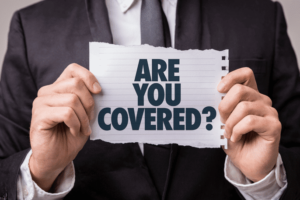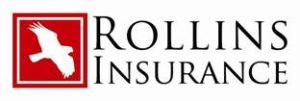 If you drive a car, financial loss may occur for a number of causes and automotive insurance can cover your losses in different ways. You may question what your auto insurance covers. You may know how car insurance works but may not be aware of the various forms of car insurance. Most basic vehicle policies include property damage, liability, collision, comprehensive, uninsured motorist, bodily injury liability, and personal injury. Check with your state because different states have different types of insurance under their mandate. Kentucky is a mandatory insurance state. All owners of motor vehicles in Kentucky are required to carry minimum liability coverage. In addition, the policy must provide basic reparations benefits unless the insured vehicle is a motorcycle. Important: Per KRS 304.39-087, KRS 186A. Each coverage type is charged independently, and a policy and price limits are variable.
If you drive a car, financial loss may occur for a number of causes and automotive insurance can cover your losses in different ways. You may question what your auto insurance covers. You may know how car insurance works but may not be aware of the various forms of car insurance. Most basic vehicle policies include property damage, liability, collision, comprehensive, uninsured motorist, bodily injury liability, and personal injury. Check with your state because different states have different types of insurance under their mandate. Kentucky is a mandatory insurance state. All owners of motor vehicles in Kentucky are required to carry minimum liability coverage. In addition, the policy must provide basic reparations benefits unless the insured vehicle is a motorcycle. Important: Per KRS 304.39-087, KRS 186A. Each coverage type is charged independently, and a policy and price limits are variable.
Full Coverage Auto Insurance
Most lenders will require you to carry full coverage on a financed car. This protects their investment in the event that you are in an accident and the vehicle is totaled, if it is stolen, or you can no longer afford to make the monthly payments. This is because liability insurance, also known as minimum coverage, only covers the damages that you are responsible for with another driver. It does not cover your own damages. If you are in an accident and you are responsible, minimum liability insurance will not provide you with any compensation. Most lenders require that you show proof of full coverage before you can even leave the dealership with your new vehicle. They will also continue to check that you carry full coverage throughout the loan.
Collision Insurance
Collision insurance may cover damage to your car after an accident involving another vehicle and may help to repair or replace a covered vehicle. Collision covers damage to your car if you hit another car, pole, tree or even a pothole. Collision converge does not cover damage to the other driver’s vehicle.
Comprehensive Insurance
Comprehensive insurance can provide an extra level of coverage in the instance of an accident involving another vehicle. It may help pay for damage to your car due to incidents besides collisions. These include vandalism, certain weather events, glass breakage objects falling, and accidents with animals. So, if your car is outside in a hailstorm or the windshield is accidentally broken, your comprehensive coverage will pay for the damages.
Liability Insurance
Being liable simply means you are responsible for something legally. For auto insurance, the liability refers to harm incurred during an automobile accident. Liability coverage is required in most US states as a legal requirement to drive a car. Liability insurance may help cover damages for injuries and property damage to others for which you become legally responsible resulting from a covered accident.
Uninsured And Underinsured Motorist
Uninsured motorist insurance can protect you and your car against uninsured drivers and hit-and-run accidents. This coverage is often paired with underinsured drivers’ insurance. The coverage applies to healthcare costs if you are hit by another driver, but they have no liability coverage for coverage to pay for your injury. Uninsured motorist property damage coverage is meant to pay for your property loss if someone with no insurance protection hits you. A low deductible can occur on this type of coverage typically for $100 to $300.
Medical Payment Coverage
Medical costs following an accident can be very expensive. Medical payments coverage can help pay medical costs related to a covered accident, regardless of who is at fault. Medical payment exclusively covers medical expenditures arising from car accidents, normally it does not compensate for things such as lost wages. The coverage may protect you if you are a pedestrian hit by a car.
Property Damage Liability
It helps pay to repair the damage you cause to another person’s vehicle or property. Property damage liability coverage is required by law in most states. It typically helps cover the cost of repairs if you are at fault for a car accident that damages another vehicle or property such as a fence, a mailbox, or building’s front.
Bodily Injury Liability
If you are responsible for a car accident, bodily injury liability coverage pays for the medical costs of the people who are injured (not including yourself). This coverage also helps cover payment for legal defense in the event you are sued for damages. Most states have a minimum bodily injury liability standard that you have to carry.
Person Injury Protection (PIP)
Because Kentucky is a no-fault state, you are obliged to carry this form of insurance. PIP covers medical and rehabilitation costs and burial costs. PIP may also cover benefits for work loss and childcare or household care if you cannot finish the tasks because of injuries sustained. if you are living in an at-fault state, you may be able to purchase PIP for additional protection.
Gap Insurance
Guaranteed Asset Protection insurance was established in the North American financial industry. GAP insurance protects the borrower if the car is written off or totaled by paying the remaining difference between the actual cash value of a vehicle and the balance still owed on the financing. Gap insurance normally comes from the lender but can be acquired through your insurance company as a support for your car insurance coverage.
New Car Replacement Insurance
Before you drive a new car off the dealer’s lot, you may want to consider new-car replacement insurance. If your car is stolen or totaled in an accident, comprehensive and collision insurance both typically required for the life of an auto loan, will pay out up to the car’s value, minus any deductible.
But because new vehicles lose value quickly, that claim check will be less than what you paid for the car, leaving you in a financial bind with no ride. New-car replacement insurance, an option with some insurers, offers to ease the financial pain. It pays the value of a brand-new car of the same make and model, minus the deductible, if your car is declared a total loss.
What Is Roadside Assistance On Your Insurance?
Roadside assistance usually provides towing coverage and roadside emergency service. Unlike car insurance, which covers damage or loss of your vehicle, roadside assistance is simply here to get your car moving if it breaks down. So, where an insurance claim can cause a premium increase (and a loss of your no claim discounts), calling for roadside assistance will not!
Rental Reimbursement Insurance
Rental Reimbursement* is an optional coverage that helps pay your rental car costs while your car is being repaired as a result of a covered claim. You can generally keep the rental car until your damaged vehicle is back on the road or until your coverage limit runs out, whichever comes first.
It is always a good idea to get more additional insurance than the limit of your state to be safe and prevent a financial catastrophe.
Contact us (859-781-7283) for more information or get a free quote!
—
 About Rollins Insurance
About Rollins Insurance
Rollins Insurance is an independent insurance agency providing our clients the best prices with the most coverage possible since 2008. We represent multiple A-rated insurance companies to make sure we deliver the most competitive rate packages to our clients in Kentucky and Ohio. We find that most people are under-insured and over-paying when we meet them. We love what we do and our primary business is Personal Auto, Homeowners, and Life and Health insurance. We are a family-owned and managed business that specializes in providing needs-based insurance services.
>> Learn More About Us and Our Staff
